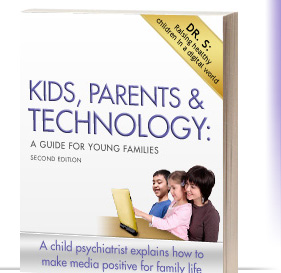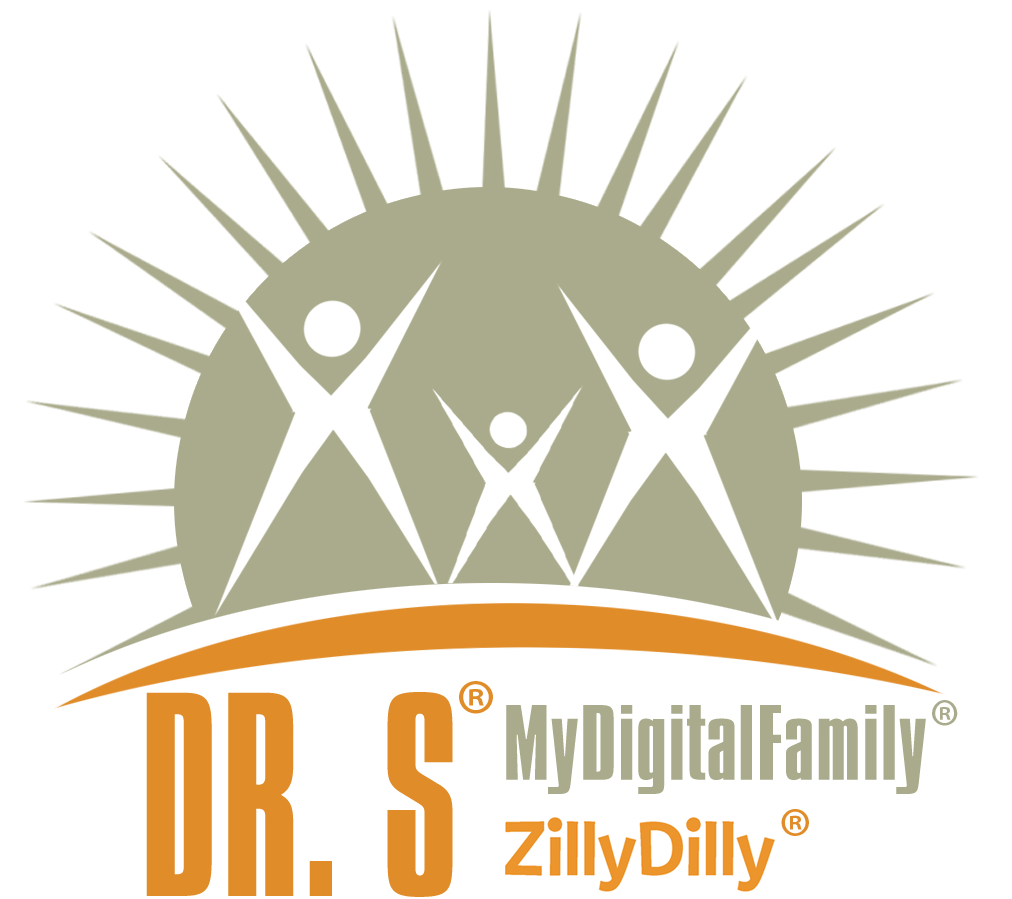Originally published by ThinkerMedia: BestThinking.com on December 18, 2011
Attention is that busy traffic cop pivoting and whistle-blowing in the midst of the streams of information spamming into our minds. These days, the overworked cop is slaving overtime and burning out. Too many of us — especially kids — are overwhelmed by too much information.
Experts and teachers alike are increasingly worried that the chaotic tsunami of information pouring through iPads, iPhones, iTouches, computers, TVs, androids, and other devices into our children’s minds may be overtaxing and damaging brain development, especially how kids learn to pay attention. Many believe we are just seeing the tip of an iceberg.
College professors are noticing that except for the brightest, most students these days have less ability to consistently focus their attention to attain their potential. In addition, the empathy and engagement with others that come with attentive listening and full presence is degraded by electronic distractions. And that goes for parents interacting with babies, too. I fear that such insidious damage, starting in early childhood, is irreversible and will cost us much in lost human potential.
Just to set the record straight: I am a doctor, parent, and pretty decent technophile. In fact, my latest invention is the world’s first curated browser system for kids. I love technology and believe it has great power to do good when fitted thoughtfully and in a balanced way to human needs. I advocate its proper, balanced, and age-appropriate use with children. I also believe in the awesome human brain and that it needs proper development. (And BTW, I don’t expect children themselves nor those adults already seduced by the technology to agree with my POV.)
Attention has long been recognized as an essential executive function that either by effort of will or automatically directs other mind/brain functions, like prioritizing inputs from our senses, turning on or off other processing of information and memory, and monitoring and orchestrating our behaviors. It is essential for accomplishing excellence in most human endeavors to focus intensely and consistently. Attention filters myriads of possible competing distractions, both external or internal, yet is flexible enough to instantaneously focus intensely on threat situations.
Developing disciplined attention skills and repelling distractions are life-long challenges. We are learning more and more about the brain mechanisms involved, and know that they are both genetically and environmentally determined starting with infancy. We know that our attention networks are mostly governed from the area just behind our foreheads and that they fluctuate dynamically normally with fatigue, hunger, and emotional states and extremes can be aspects of many psychiatric or neurocognitive conditions.
Parents: We know that our children cannot manage their attentional skills on their own in the face of massive assaults from over-abundant information and seductive entertainment. Yet too many children are left to do just that when, in fact, they can do no better than create healthy diets as they are bombarded with junk food distractions.
Please realize that although they do look focused while surfing, TV watching, or gaming, kids are not necessarily practicing and developing the attention skills they need because interacting with a digital device may not call for active attentional discipline nor perseverance as reading, imaginative and inventive playing, deeper conversations, spiritual connections, imagining, or creating. Nor are they efficient learners as multitaskers.
I strongly believe that it is time that parents become educated, empowered, and given the tools to provide their children with the right balance of benefits from media to assure sound development, especially of attention skills.
So parents — heads up. Pay attention to your child’s paying attention. Is it attention span or attention spam that your child is learning?
- Make the act of paying attention a distinctive behavior to notice, monitor, discuss, learn, and teach.
- Use parental controls on digital devices to limit time and access.
- Choose apps and online content carefully — do not buy on impulse. Less is more.
- Children vary in their auditory and visual attention among each other and over time. A young child’s attention span in minutes is roughly twice his age in years.
- Limit over-stimulation by restricting the number of choices and blocking distractions online to accustom children to sharply focus attention and enjoy opportunities for the pleasure accompanying true mastery and learning.
- As skills improve gradually with age and practice, increase the challenges of more focusing time and discipline to resist potential distractions.
- Reinforce with specific praise and rewards persistence and discipline of paying attention.
- Teach self awareness of media consumption — its duration and benefits/ disadvantages.
- Teach recognition of information overload, potential distractions, and attentional drifting and strategies of stopping, taking a break, etc.
- Play games to teach visual and auditory attention skills like taking turns closing eyes and asking “What color was that car?” or “What ad did you see that you avoided?” or “What did that radio announcer just say?”
An important bit of cautionary advice: Respect a child’s efforts as the best he can offer and adjust your expectations accordingly, unless you have overwhelming credible evidence to the contrary verified by an expert!
Dr. S is the inventor of the ZillyDilly iPad app system (http://itunes.apple.com/us/app/zillydilly-for-ipad/id492673037 ) that puts his philosophy into practice as a convenient tool, the world’s first curated browser for kids and media manager for parents. www.MyDigitalFamily.org presents Dr. Eitan Schwarz’s passion about aligning the wonders of technology with the needs of kids and families. Dr. S practices child and family psychiatry in Skokie, Illinois and is the author of the comprehensive Kids, Parents & Technology: A Guide for Young Families. Currently on the faculty of Northwestern University Feinberg School of Medicine, Dr. Schwarz is a pioneer researcher in the use of digital media in therapy with children.
(c) copyright 2011 Eitan Schwarz



Q: Is the iPad Good for Kids’ Attention Span? A: Yes, But Only If Parents Manage It for Them.
Originally published by ThinkerMedia: BestThinking.com on December 18, 2011
Attention is that busy traffic cop pivoting and whistle-blowing in the midst of the streams of information spamming into our minds. These days, the overworked cop is slaving overtime and burning out. Too many of us — especially kids — are overwhelmed by too much information.
Experts and teachers alike are increasingly worried that the chaotic tsunami of information pouring through iPads, iPhones, iTouches, computers, TVs, androids, and other devices into our children’s minds may be overtaxing and damaging brain development, especially how kids learn to pay attention. Many believe we are just seeing the tip of an iceberg.
College professors are noticing that except for the brightest, most students these days have less ability to consistently focus their attention to attain their potential. In addition, the empathy and engagement with others that come with attentive listening and full presence is degraded by electronic distractions. And that goes for parents interacting with babies, too. I fear that such insidious damage, starting in early childhood, is irreversible and will cost us much in lost human potential.
Just to set the record straight: I am a doctor, parent, and pretty decent technophile. In fact, my latest invention is the world’s first curated browser system for kids. I love technology and believe it has great power to do good when fitted thoughtfully and in a balanced way to human needs. I advocate its proper, balanced, and age-appropriate use with children. I also believe in the awesome human brain and that it needs proper development. (And BTW, I don’t expect children themselves nor those adults already seduced by the technology to agree with my POV.)
Attention has long been recognized as an essential executive function that either by effort of will or automatically directs other mind/brain functions, like prioritizing inputs from our senses, turning on or off other processing of information and memory, and monitoring and orchestrating our behaviors. It is essential for accomplishing excellence in most human endeavors to focus intensely and consistently. Attention filters myriads of possible competing distractions, both external or internal, yet is flexible enough to instantaneously focus intensely on threat situations.
Developing disciplined attention skills and repelling distractions are life-long challenges. We are learning more and more about the brain mechanisms involved, and know that they are both genetically and environmentally determined starting with infancy. We know that our attention networks are mostly governed from the area just behind our foreheads and that they fluctuate dynamically normally with fatigue, hunger, and emotional states and extremes can be aspects of many psychiatric or neurocognitive conditions.
Parents: We know that our children cannot manage their attentional skills on their own in the face of massive assaults from over-abundant information and seductive entertainment. Yet too many children are left to do just that when, in fact, they can do no better than create healthy diets as they are bombarded with junk food distractions.
Please realize that although they do look focused while surfing, TV watching, or gaming, kids are not necessarily practicing and developing the attention skills they need because interacting with a digital device may not call for active attentional discipline nor perseverance as reading, imaginative and inventive playing, deeper conversations, spiritual connections, imagining, or creating. Nor are they efficient learners as multitaskers.
I strongly believe that it is time that parents become educated, empowered, and given the tools to provide their children with the right balance of benefits from media to assure sound development, especially of attention skills.
So parents — heads up. Pay attention to your child’s paying attention. Is it attention span or attention spam that your child is learning?
An important bit of cautionary advice: Respect a child’s efforts as the best he can offer and adjust your expectations accordingly, unless you have overwhelming credible evidence to the contrary verified by an expert!
Dr. S is the inventor of the ZillyDilly iPad app system (http://itunes.apple.com/us/app/zillydilly-for-ipad/id492673037 ) that puts his philosophy into practice as a convenient tool, the world’s first curated browser for kids and media manager for parents. www.MyDigitalFamily.org presents Dr. Eitan Schwarz’s passion about aligning the wonders of technology with the needs of kids and families. Dr. S practices child and family psychiatry in Skokie, Illinois and is the author of the comprehensive Kids, Parents & Technology: A Guide for Young Families. Currently on the faculty of Northwestern University Feinberg School of Medicine, Dr. Schwarz is a pioneer researcher in the use of digital media in therapy with children.
(c) copyright 2011 Eitan Schwarz